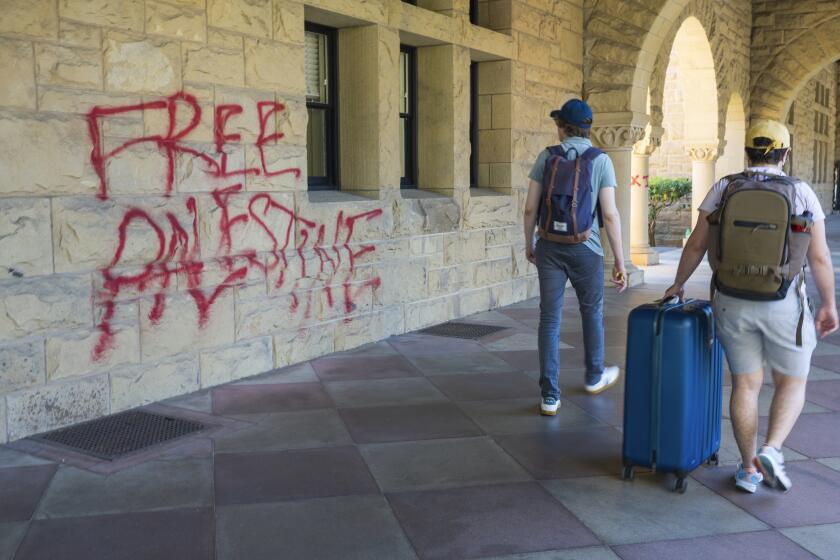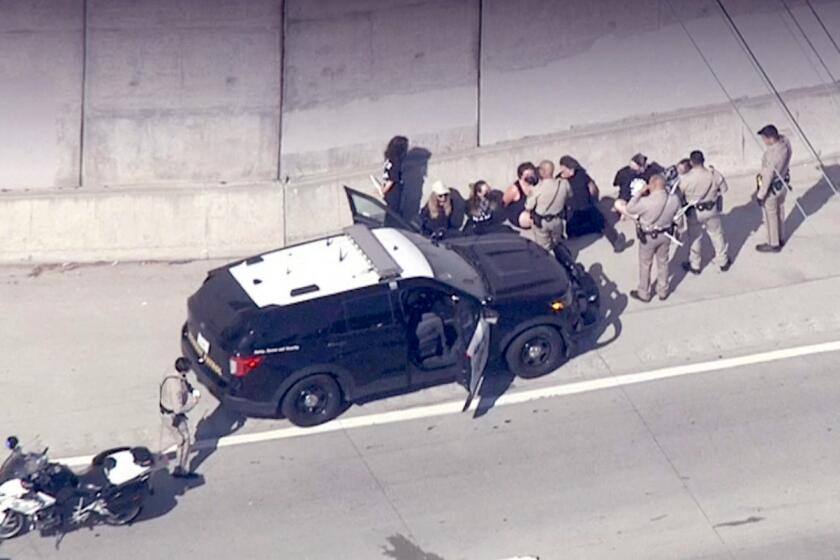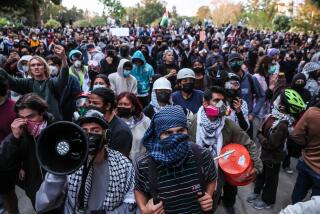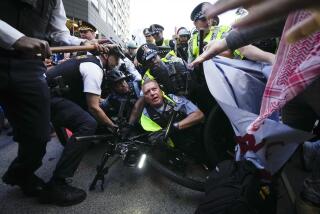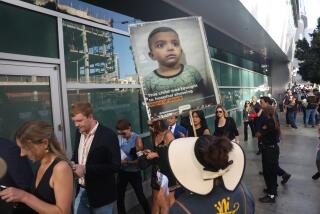San Francisco D.A. brings charges against pro-Palestinian protesters who blocked Golden Gate Bridge
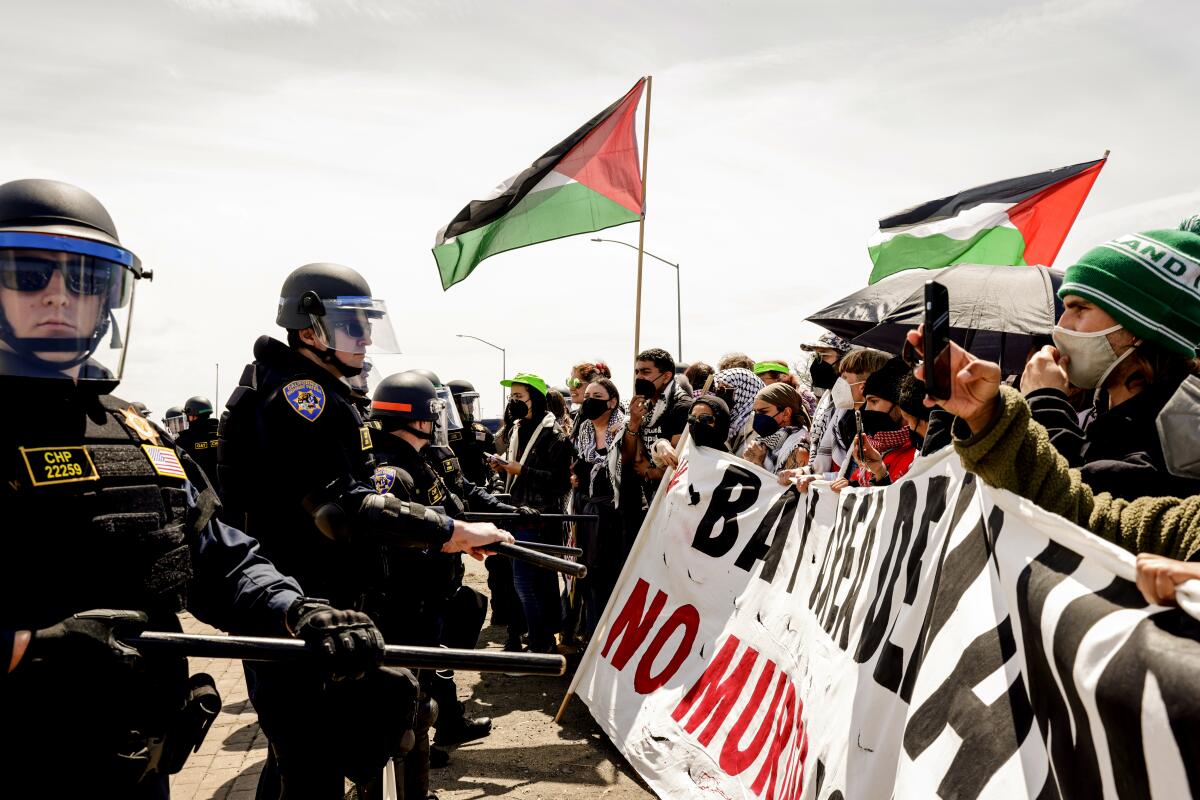
- Share via
Protesters blocked traffic on the Golden Gate Bridge in mid-April to call attention to the war in Gaza and the suffering of Palestinian civilians whose cities were being bombarded.
Now, authorities in San Francisco are prosecuting them for trapping people in their cars on the bridge for hours. The San Francisco Public Defender countered that officials were “weaponizing the law” against protesters; he wants the charges dropped.
The San Francisco district attorney’s office announced in a news release Monday that arrest warrants were issued for the 26 people who participated in the April 15 protest. All 26 surrendered to law enforcement, according to the California Highway Patrol, but they have not appeared in court or been assigned legal representation.
“While we must protect avenues for free speech, the exercise of free speech can not compromise public safety,” Dist. Atty. Brooke Jenkins said in a statement. “The demonstration on the Golden Gate Bridge caused a level of safety risk, including extreme threats to the health and welfare of those trapped, that we as a society cannot ignore or allow.”
The group, dubbed the “Golden Gate 26” by their supporters, could be represented by the San Francisco Public Defender’s Office, which blasted the charges and cited a higher moral authority for the protest.
The district attorney’s office has not made a decision on what charges will be filed against the protesters.
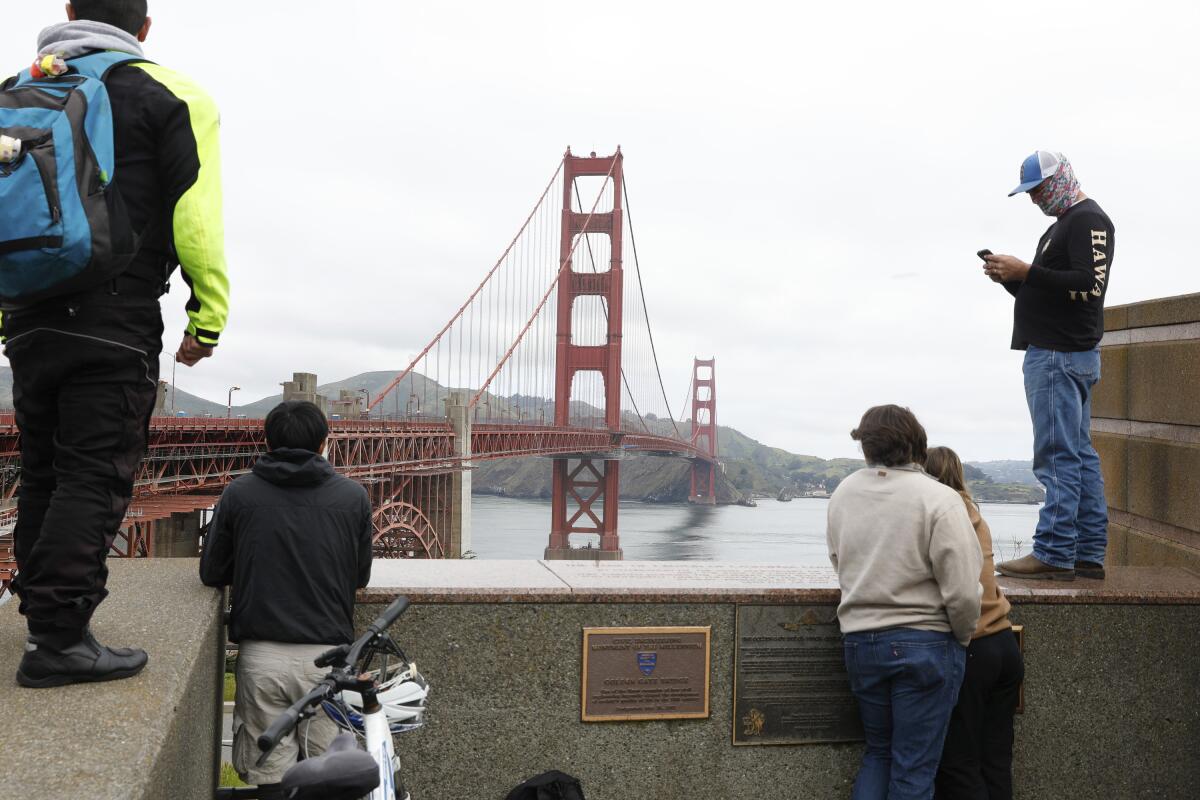
“The protestors are opposing American tax dollars being used to fund ongoing attacks on the people in Gaza, which the International Criminal Court has deemed crimes against humanity,” San Francisco Public Defender Mano Raju said in a statement. “Our attorneys intend to vehemently defend any individuals we are appointed to represent.”
The district attorney’s office charged the 26 with trespassing to interfere with a business, obstruction of a thoroughfare, unlawful assembly, refusal to disperse at a riot, failure to obey the orders of police and 38 counts of false imprisonment. Eight of the defendants also face a felony conspiracy charge, and the rest face a misdemeanor conspiracy charge.
Protests in opposition to the war in Gaza have taken over highways, college campuses and city streets since the Oct. 7 attack by Hamas on Israel, in which militants killed 1,200 Israelis and took about 250 hostages, roughly 115 of whom are still missing. Since then, Israeli forces have killed nearly 40,000 Palestinians in Gaza, according to health officials in Gaza, who include both Hamas forces and civilians in their casualty counts.
The protesters gathered shortly before 8 a.m. on April 15 on the Golden Gate Bridge, where they abandoned their vehicles and chained their bodies together while holding up signs. The group’s members were warned repeatedly by police and other officials that they would be arrested if they did not move, but the group ignored them, according to the district attorney’s office.
The group is calling for the U.S. to end its support of the Israeli government over the war in Gaza.
A protester later identified as Sara Cantor told police that the protesters would not resist arrest, but the demonstrators who were interlocked between vehicles with a large metal tube would not voluntarily comply with authorities, the district attorney’s office said. All of the protesters were arrested and removed from the bridge, and the traffic lanes were reopened by 12:20 p.m.
Roughly 12,000 vehicles travel south and 8,000 vehicles travel north on the bridge from 8 a.m. to noon, according to the Golden Gate Bridge, Highway and Transportation District, which the office claims lost more than $162,000 in revenue due to the protest.
Jenkins took to social media after the protest to ask anyone stuck on the Golden Gate Bridge to come forward, because they could be entitled to restitution and have other rights guaranteed under state’s law.
The office said several hundred people were held against their will at the mercy of the protest. According to court documents, people caught in the middle of stopped traffic missed work and important medical appointments, and a mother with her baby did not have water for the infant formula.
More to Read
Sign up for Essential California
The most important California stories and recommendations in your inbox every morning.
You may occasionally receive promotional content from the Los Angeles Times.
